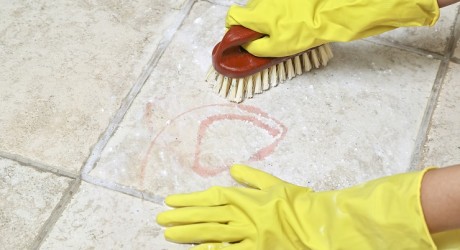Chemicals in a wide range of everyday objects such as baby soothers, condoms and rubber gloves can cause cancer, global health chiefs have warned.
Experts from the World Health Organisation (WHO) have concluded that MBT, which is used in rubber manufacturing, should be added to its “encyclopaedia of carcinogens.”
The extensive list of products the substance is found in also includes rubber insoles for shoes, air beds, elastic bands, swimming caps and goggles, medical catheters, car tyres, soft playground and sports surfaces made of “rubber crumb,” and more.
At a meeting in Lyon, France, 24 experts from eight countries concluded that the substance “probably causes cancer,” putting it alongside red meat and only one rung below cigarettes, asbestos and other definite causes of cancer.
Professor Hans Kromhout, a member of the committee which reviewed the chemical, said MBT had been identified “in gloves and baby bottle teats and soothers” and more recently in “inhalable road dust with the wearing of rubber tyres the most likely source of this contamination.”
Data on the substance has been reviewed by the WHO’s International Agency for Research on Cancer which also looked at a study of workers at a chemical factory in Wales.
But because the workers were also exposed to other chemicals, it was hard to be sure MBT was to blame, according to the report.
The research, by Professor Tom Sorahan, of Birmingham University, linked MBT to bladder cancer, bowel cancer and a type of blood cancer.
The news comes after a former British National Health Service (NHS) chief claimed that 3G football pitches may have caused his son’s cancer.
Nigel Maguire quit as the chief executive of NHS Cumbria when his son Lewis, who had a trial at Leeds United, was diagnosed with the disease.
Since then Maguire has been calling for a ban on 3G pitches, which he believes are the root of the problem.
Many of the pitches are covered in small rubber pellets, which are made out of old rubber tyres and can contain toxic chemicals such as mercury and arsenic.
Campaigners believe that the pellets can cause cancer if players accidentally swallow them or get them in cuts.
Maguire says his goalkeeper son was exposed to these harmful chemicals while diving around on the pitches.
It wasn’t the first time such a claim has been made by the parents of a cancer sufferer.
Austen Everett, a goalkeeper for the University of Miami, died aged 25 in 2012 and her mother, Jean Leahy, is concerned the pitches could have been a contributory factor to her death.
Meanwhile, University of Washington coach Amy Griffin, a former World Cup-winning goalkeeper for the US women’s national team, said she had found over 158 cases of footballers developing cancer while doing her research and she believes artificial pitches could be a contributory factor. (Caribbean 360)














